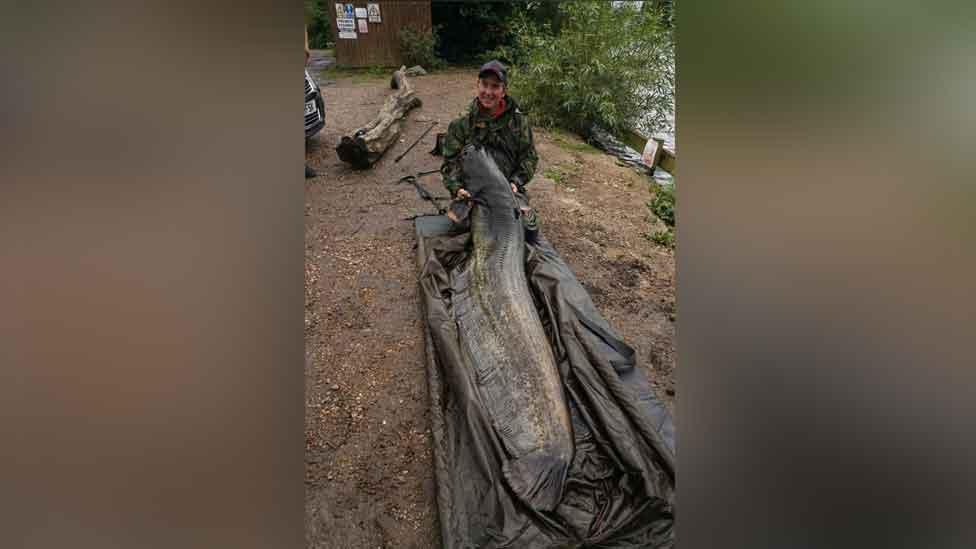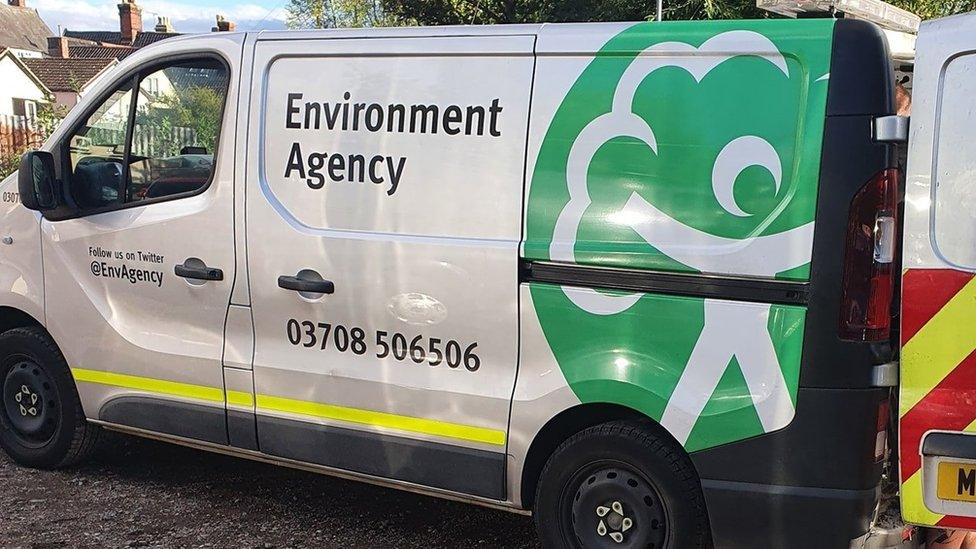Diss Mere catfish: Anger as huge 'fish of a lifetime' removed
- Published

The Diss and District Angling Club congratulated angler Phil Spinks for catching a "fish of a lifetime"
A row has erupted over the removal of a "fish of a lifetime" after being caught by an angler at a Norfolk mere.
The non-native 122lb (55kg) catfish was "dropped in illegally" at Diss Mere about 10 years ago and was caught on Tuesday.
After news of the catch was posted on Facebook, external, some social media users criticised the decision to remove it.
But the Environment Agency said the fish did not belong in the mere and has been taken to an undisclosed site.
Ben Wilby, from Diss and District Angling Club, said angler Phil Spinks "unintentionally" caught it while carp fishing, five years after the last known catch.
"The Environment Agency made it clear that if it was caught again we had to let them know and they would remove it so that's what we've done," said Mr Wilby.

The Environment Agency took the fish from Diss Mere to a "permitted site"
A post on the club's Facebook page congratulating Mr Spinks on the catch, which was estimated to be more than 6ft (1.8m) in length, said it was "unfortunately, not one which should be in the mere".
The post has been viewed 120,000 times and attracted hundreds of comments on both sides of the argument, forcing the club to defend its action.
One said it was "absolutely ridiculous to move it", while another said it should have been left in the mere, "where it's been living and doing well for years".
Those in support said it was right to remove it, with one saying "at that size it will eat pretty much anything that ventures into the mere".
Mr Wilby said: "People have said it should be left in there and it's not doing any harm, but we've done what we needed to do.
"A lot of the negativity is probably driven by people who don't know the full story."
The Environment Agency said it removed the catfish with specialist equipment and took it to an undisclosed location.
"Catfish are a non-native species that can harm delicate river eco-systems. They can only be used for angling purposes when in a fully enclosed still water where the owner has a permit granted by the Environment Agency," a spokesman said.
According to the British Record Fish Committee, external, the largest recorded capture of the species was set in May when a 147lb (66.6kg) wels catfish was caught at the Oak Lakes Fishery in Essex.